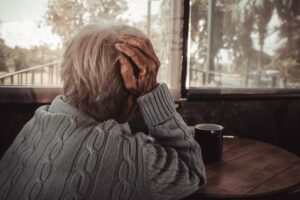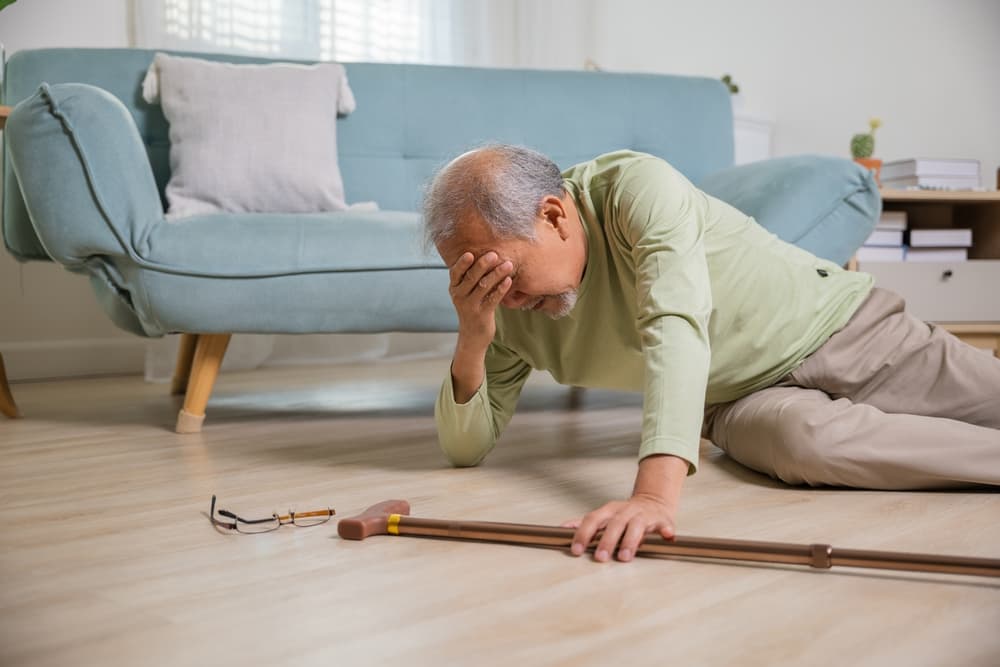Discovering that an elderly person you cherish might have suffered from abuse is deeply unsettling. As you grapple with concern and uncertainty, you need a clear action plan to address the situation.
Here’s what you need to know about recognizing elder abuse and what you can do to keep your loved one safe, seek justice and support from our experienced New Port Richey elder abuse attorney today.
What Types of Elder Abuse Are There?

Elder abuse involves intentional or negligent acts by a caregiver or any other person that harm or create a serious risk of harm to an older adult. This includes harm that is physical, psychological, financial, or sexual in nature.
As the United States’ elderly population grows due to increases in life expectancy, elder abuse has also become more common.
Vulnerabilities related to aging, like cognitive decline or physical frailty, make many older adults more susceptible to mistreatment, such as:
- Physical Abuse: Physical abuse involves inflicting physical pain or injury upon a vulnerable elderly person. Examples include slapping, bruising, restraining by physical or chemical means, and engaging in any other type of violence. This type of abuse can result in wounds, broken bones, abrasions, and even more severe health complications. It’s easy to dismiss the signs of physical abuse as resulting from aging or accidents, so loved ones must always watch out for any patterns or unexplained injuries.
- Psychological or Emotional Abuse: This type of abuse occurs when someone uses words or actions to control, frighten, or isolate an elderly adult. This includes belittling, threatening, ridiculing, humiliating, intimidating, or treating someone like a child. Emotional abuse can occur verbally or nonverbally. Signs of possible emotional abuse include behaviors like isolating from loved ones, withdrawing from favorite activities, experiencing sleep disturbances, and exhibiting general distress.
- Sexual Abuse: Given their potential physical frailty or cognitive impairments, older adults are easy targets for sexual predation. Any non-consensual sexual contact with an elderly person falls under the category of sexual abuse. Sexual contact between older adults and their caregivers is highly inappropriate and likely abusive. This can include actions like unwelcome touching, sexual assault, rape, or forceable exposure to pornographic material.
- Financial Abuse: Financial abuse involves the unauthorized or inappropriate use of an elderly person’s funds, assets, or property. Scammers’ tactics range from outright theft or forgery to misappropriating funds and coercing older individuals into signing contracts or wills. Financial exploitation often goes unnoticed, especially if the abuser is a primary caregiver or someone else the older adult trusts.
- Neglect: Neglect involves a caregiver’s refusal or failure to provide an elderly person with the necessities of life, such as food, water, clothing, shelter, cleanliness, medicine, comfort, or safety. Some neglect is intentional, such as in cases involving frustrated or malicious caregivers. In other cases, neglect occurs inadvertently due to ignorance or lack of resources.
How Prevalent Is Elder Abuse?
Elder abuse is distressingly common in the United States.
The following data from a recent study illustrate just how many older Americans suffer unthinkable abuse and neglect at the hands of their caregivers:
- Roughly one in ten individuals over 65 encounter some type of abuse, including those who live at home.
- Older Americans from all walks of life are vulnerable to abuse, but abuse rates are typically higher in long-term care facilities like nursing homes.
- Researchers estimate that only about one in 14 elder abuse incidents gets reported to the appropriate authorities.
- Elder abuse victims face severe psychological and physical repercussions, with greater risks of hospitalization and higher mortality rates.
- In nursing homes, the most common types of nursing home abuse include physical (29 percent), resident-to-resident (22 percent), gross neglect (14 percent), financial (seven percent), and sexual (seven percent).
- A survey of nursing home staff revealed that 40 percent admitted to committing psychological abuse within the past year. This included acts like shouting at patients, unjustified isolation, and withholding meals.
- In that same survey, 50 percent of nursing home staff confessed to mistreating their patients. This includes behaviors like pushing or shoving (17 percent), swearing (23 percent), and yelling at residents (51 percent).
- When researchers surveyed patients, the reports of abuse and neglect increased. Among nursing home residents, 44 percent reported experiencing abuse, and 95 percent claimed they experienced or witnessed neglect.
- Reports suggest older women are more at risk for elder abuse. Other abuse risk factors for victims include dementia, dependency on the abuser, social isolation, and physical disabilities.
- Perpetrators of abuse often exhibit risk factors such as high stress levels, histories of alcohol or drug abuse, mental health problems, and a lack of social support.
What Are the Signs of Elder Abuse?
Understanding and identifying the signs of nursing abuse is essential in preventing further harm and seeking accountability. Each form of elder abuse has specific indicators that loved ones can observe in the victim’s behavior, physical condition, or environment. Here’s what you should look for if you suspect that someone you love is experiencing elder abuse.
Signs of Physical Abuse
Physical abuse refers to any intentional behavior that causes injury or physical pain.
Here are the common signs:
- Unexplained bruises, welts, or scars
- Broken bones, sprains, or dislocations
- Rope marks or other signs of restraint
- Unexplained hair loss, possibly from pulling
- Recurring injuries or patterns of injuries over time
- Refusal by the caregiver to allow visits alone with the individual
- Burns, possibly from cigarettes, appliances, or hot water
- Sudden onset of dental problems or broken eyeglasses
- Signs of medicating or sedating the person more than necessary
- Inconsistent stories or explanations about injuries
Signs of Psychological or Emotional Abuse
Emotional abuse can leave invisible yet profoundly damaging scars.
Its indicators often manifest as changes in the person’s behavior or demeanor, such as:
- Unexplained or sudden mood swings
- Depression or withdrawal from social interactions
- Unusual fear or anxiety, especially around certain individuals
- Changes in sleeping or eating patterns
- Regressive behaviors like thumb-sucking or rocking
- Reluctance to speak or communicate
- Avoidance of eye contact
- Displaying low self-esteem or self-worth
- Conflicting accounts of incidents by the victim and the caregiver
- Over-reliance on caregivers despite being physically capable
Signs of Financial Abuse
Financial exploitation involves the unauthorized or wrongful use of money or assets.
Here are signs of possible financial abuse:
- Sudden or unexplained bank account withdrawals
- Disappearance of funds, valuable items, or property
- Unpaid bills or lack of medical care despite adequate resources
- Addition of new names on the elder’s bank accounts
- Unauthorized changes in wills, powers of attorney, or other legal documents
- Forged signatures on financial transactions or checks
- Excessive or unexplained gifts to a caregiver or new friend
- Sudden initiations of property transfers
- Financial activity the person couldn’t have done, like ATM withdrawals when they’re housebound
Signs of Sexual Abuse
Any non-consensual sexual act against an elderly person is sexual abuse.
Here are the signs to watch for if you suspect sexual abuse:
- Unexplained genital infections or STDs
- Bruising around the breasts or genital area
- Torn, stained, or bloody underwear
- Unexplained vaginal or anal bleeding
- Difficulty walking or sitting
- Panic attacks or emerging PTSD symptoms
- Regressive behaviors or excessive fear
- Disinterest in or aversion to people they were previously comfortable with
- Displays of sexual behaviors or knowledge uncommon for the person
- Disturbed sleep or nightmares
Signs of Neglect
Neglect involves the failure to fulfill an elderly person’s basic needs.
Any of the following signs indicate neglect:
- Malnutrition or dehydration without a medical cause
- Unsanitary living conditions, including dirt, bugs, or soiled bedding
- Inadequate clothing or protection from the weather
- Untreated medical issues or lack of medical aids like glasses or hearing aids
- Abandonment or desertion in public places
- Persistent bed sores or skin rashes
- The absence of necessary utilities like water, heat, or electricity
- Frequent preventable injuries, like falls
- Inconsistent explanations about the patient’s well-being from the caregiver
- Isolation from friends, family, or other social contacts
What Are the Most Common Reasons Behind Elder Abuse?
There is no justification for abusive behavior, ever. However, certain factors increase the likelihood of elder abuse among caregivers.
For instance, one pervasive issue in many nursing homes is understaffing. One study highlighted that up to 90 percent of nursing homes lack adequate staff, leading to scenarios where a single aide might simultaneously be responsible for up to thirty patients.
This is in stark contrast to the ideal staff member-to-resident ratio, which should range between 1:3 and 1:6. Such disproportionate care can result in neglect, errors, and, in certain cases, intentional abuse stemming from immense stress.
Here are some other common contributing factors that prompt nursing home staff and other caregivers to abuse the elderly:
- Lack of Training: Improper training can result in staff not knowing how to handle certain situations or care for residents with specific needs. This can lead to mistakes, neglect, and intentional harm when staff members become frustrated or overwhelmed.
- Burnout and Stress: Caring for elderly residents, especially those with chronic illnesses or cognitive impairments, is often physically and emotionally taxing. Over time, this can lead to burnout, making staff less empathetic and more likely to commit abuse.
- Financial Gain: Financial abuse can occur when unscrupulous caregivers or administrators take advantage of residents by stealing from them, coercing them into financial transactions, or manipulating their assets.
- Substance Abuse: Staff members who abuse drugs or alcohol might abuse elders due to impaired judgment, increased aggression, or reduced patience.
- Mental Health Issues: Caregivers with untreated mental health disorders might act out in harmful ways, especially if their conditions contribute to aggression, mood swings, or impaired judgment.
- Personal Aggravation: Some caregivers might bring their personal problems or frustrations into the workplace, taking it out on the residents.
- Lack of Oversight: In facilities with poor management or inadequate supervision, staff might feel like they can act without consequences, leading to increased instances of abuse.
- Normalization of Poor Care: In some institutions, subpar care or abusive behavior might become normalized if it’s widespread. This can create an environment where new or other staff believe such behavior is acceptable.
What Should I Do if I Suspect Possible Elder Abuse?
Elder abuse, whether physical, emotional, financial, or otherwise, is a deeply troubling and grievous offense. Ensuring the safety and well-being of our senior loved ones is paramount.
If you suspect that someone you care about is experiencing elder abuse, act promptly and judiciously.
Here are the steps you should take:
- Ensure Immediate Safety: If you believe the person is in immediate danger or has suffered severe abuse, get them the medical care they need, and contact local law enforcement or emergency services immediately. Talk to a nursing home lawyer before you speak to anyone at the facility. If the facility learns of allegations of abuse, it might destroy the evidence, so carefully choose when to speak with the facility.
- Speak with Your Loved One: Approach the conversation with sensitivity and care. Ask open-ended questions to encourage them to share their feelings and experiences. Ensure they feel safe and let them know you are there to support them.
- Seek Legal Counsel: Consult a personal injury attorney with experience in elder law. They can guide you through any legal actions you might need to take, such as obtaining a restraining order or seeking compensation for the harm your loved one suffered.
- Document the Evidence: Make note of any signs of abuse you observe. This can include photographs of injuries or unsanitary living conditions, records of suspicious financial transactions, or any other evidence that might support your concerns.

- Consult with Professionals: Reach out to professionals who specialize in elder care or elder abuse. This can include doctors, counselors, or attorneys who can offer expert advice on the situation.
- Report the Abuse: Each jurisdiction has specific agencies responsible for handling reports of elder abuse. Typically, you would contact Adult Protective Services (APS) in your state or local area. They have the resources to assess these situations and take necessary action.
- Review Care Arrangements: Consider whether the current living situation is the best for your loved one. If the abuse occurs in a care facility, look for a new one or explore in-home care options.
- Stay Engaged and Vigilant: Regularly check on your loved one and maintain open communication with them. Staying involved can deter potential abusers and ensure the person feels supported.
Encourage Social Engagement: Isolation makes older adults more vulnerable to abuse. Encourage them to participate in social activities, join clubs or groups, and maintain close relationships with friends and family.



